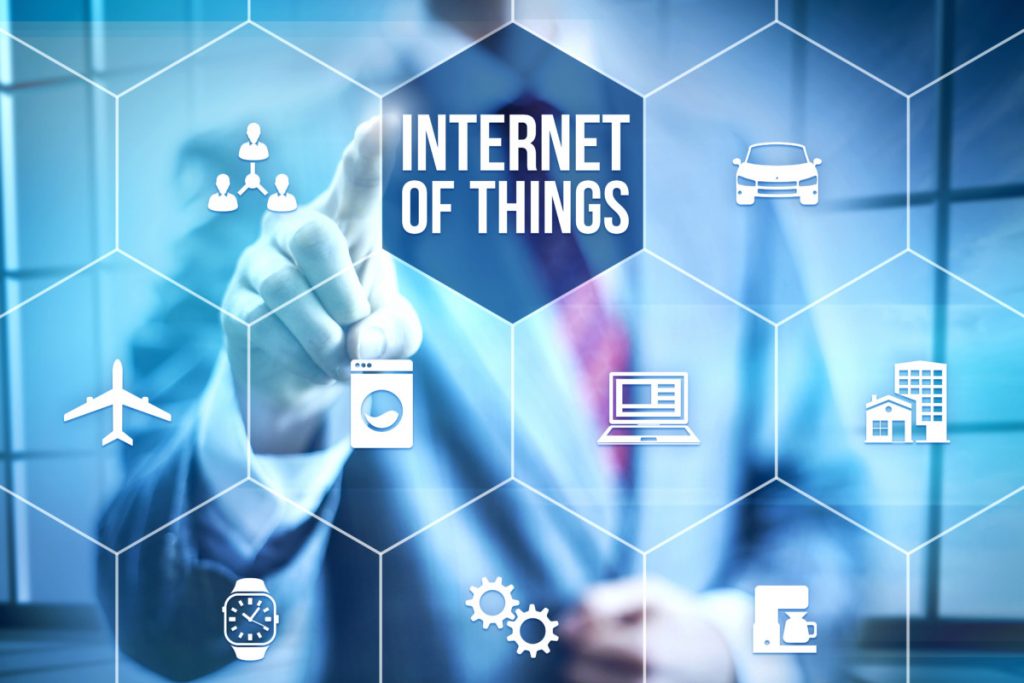Without any doubt, smartphones have changed the way people compute. Now they don’t need to glue themselves to desktop computers for regular personal / professional computing requirements or to carry heavy laptops to reply to mails on-the-go. Smartphones are today’s lightest form of computers and, you can use them for roughly everything they can handle. The whole world of the internet and almost everything online is now a few taps away…
A big credit for the rise of smartphone revolution goes to technologies of mobile app development. The leading smart device platforms like Android and iOS together have more than 4.5 million apps. You think of something that you think a smartphone can do and no surprise, to do that, you would most likely find more than one app on respective app stores. Smartphones are doing everything your PC can do.
People are still learning what their smartphones and tablets are capable of doing. But right here, we have another revolution called IoT that stands for the Internet of Things and, its meaning is to connect various objects; from devices to vehicles, to home & rooms, to appliances, through the web as well as to make them controllable through PCs and in the present scenario of IoT, through mobiles.
The idea of the Internet of Things appears to be more practical with smartphones and tablets. Unlike PCs, they can easily be carried. These devices now come with high-speed internet connectivity along with outstanding processing-power to handle any of the applications using IoT Technologies.
The time has come that mobile app developers should start focusing on apps with keeping IoT in mind. Smartphones and tables are now capable of interacting with integrated sensors used in the internet connected objects. And apps can be created to exchange the information received from these devices.
IoT has already made waves in a number of areas. We have connected cars, smart-watches, and electronic appliances which, with suitable mobile apps, can be interacted over the internet.
IoT connected Homes
Many companies around the world have entered the market of automating things at our homes. Do you need switching on AC before reaching home or switching off TV remotely so that kids can concentrate on education? There are technology, sensors, appliances and mobile applications for this purpose. Do you need timely watering your plants or switching on lightings welcoming you when you enter home? There are wireless technologies for these purposes too. The blend of IoT and mobile application development can do this for you.
Implementing IoT at home can do a lot of things. It can even search your keys for you. Your mobile devices can indicate in which direction of the home you should search for your car keys.
IoT connected cars
IoT has a number of uses in automotive industry world over. Car manufacturers recognize the power of mobile technology, web connectivity and how these technologies can be used in vehicles to make driving convenient and safer. An article published on Telegraph says that there will be 250 million cars on the road in next five years. The article further explains that “Cars will be a “major element” of the expanding Internet of Things, with one in five vehicles having some sort of wireless network connection by 2020, accounting for more than a quarter of a billion cars on global roads”.
IoT connected travel
Now the travel industry is also showing interest in the Internet of Things. The blend of Apps, QR code and NFC tags can be created in such solution or tool that interacts with several locations like museums, libraries, monuments, taxis, restaurants, etc to deliver comfortable and convenient experience to tourists while they are traveling in a city they do not know much about.
The first city to adopt this concept is Athens, Greece. The three concepts of IoT, ‘smart hotel’, ‘smart moving on city’, and ‘smart tour in the city’ have been implemented in the city and, of course, smartphones and tablets have been put in the core in the whole implementation.
Other areas
We do have IoT connected wearable gadgets, smart watches, and various other fitness gears. The blend of smart devices, mobile application development technologies, and the Internet of Things can bring other objects online. The future of smart devices based on IoT appears to be certainly brighter.
Sofia Coppol is is the technical writer of Rapidsoft technologies, a prominent mobile app development company which provides Android and iOS app development services across the global. She loves to write on latest mobile trends, mobile technologies, startups and enterprises.



